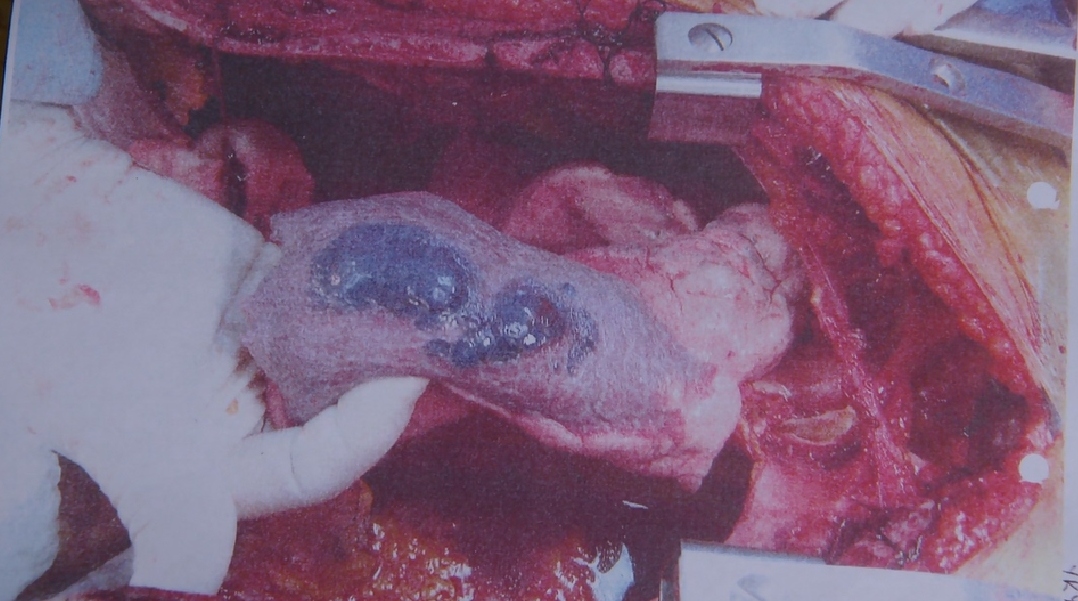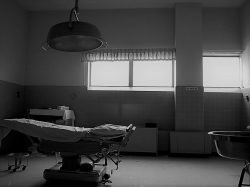I’m a 27 year old woman who was diagnosed on March 18, 2016 with blood clots in both lungs and a pleural effusion in my left lung. I’ve always been pretty active, and enjoy running, hiking, HIIT, spin, and yoga, among many other activities. I have never had any major health issues or been hospitalized. I’ve never even broken a bone before, so having a problem this serious came as quite a shock to me.
I’ve been taking oral contraceptive pills since I was 16. I started with Tri-Cyclen Lo, and was on that up until a couple of years ago when I switched to Alesse. Most recently, I switched to Alesse’s generic brand, Alysena 21, in order to save money on my prescriptions and had been on those pills for about a year before my pulmonary embolism.
I had been experiencing some pain in my back/chest for a couple of days prior to my diagnosis, which got worse when I lay down. I thought I just was experiencing really bad heartburn, as I had previously seen my doctor complaining of heartburn and she prescribed some stronger medication. The fact that the pain wasn’t going away even after trying to take the medication made me a bit concerned.
On the second night when I tried to sleep, I had severe pain in my upper back and left side of my chest, which started to radiate up to my neck and left shoulder. I also experienced more pain in my chest if I tried to inhale deeply. It almost felt like I just needed to breathe deeper and I would get relief, except it never came. The only way I could possibly lie down was on my stomach with my left arm hanging off the bed, and even then it hurt a lot. My fiancé suggested that it might just be a pulled muscle, but I finally decided that something wasn’t right so I went to emergency.
Once I got to the hospital, I explained my pain and then had an EKG, chest X-ray and blood work done. My D-dimer blood test showed that I had a high risk of blood clots, and my X-ray showed fluid in my left lung. They then scheduled me for a CT Scan, which I had to wait many hours for. I was given a Percocet to help ease the pain and I tried to lay down while I waited for the CT Scan. After getting the scan done, the doctor told me that I had blood clots in both my lungs and a pleural effusion in my left lung.
I was shocked and didn’t really know how to process the information. My mom, who is a nurse, was with me and she seemed worried as well. After speaking to a bunch of different doctors, and waiting around to see a few specialists, I was finally given a prescription for Xarelto, an anticoagulant, and sent home to rest.
The days and weeks following were pretty difficult. I felt useless, and for the first few days it was a struggle to even walk around my neighborhood. I had extreme shortness of breath, and walking around made it a lot worse. It also still hurt to lie down for the first few days, so I was pretty uncomfortable and tired.
I had follow-up appointments with my family doctor, and was scheduled for more chest X-rays to monitor the fluid in my lung. Eventually the fluid went away after a few weeks, and I was slowly starting to feel like myself again. After about a month or so, I started trying to exercise again – starting slowly at first. I’m now almost back at the point where I was prior to the pulmonary embolism, and even managed a seven kilometer run this past weekend. I’m still on Xarelto, and will be for a minimum of 6 months. Once I stop taking that, I can be tested for blood clotting disorders, including Factor V Leiden.
For the past couple years I had been wanting to stop taking birth control, as it was an inconvenience to take a pill every day at the same time, and it just didn’t seem healthy or natural. However I never ended up going through with it, as I felt like I needed to be on them in order to avoid pregnancy. Now that I’ve stopped taking them because of my pulmonary embolism, I feel healthier and will never take hormonal birth control pills ever again. There are better options for birth control out there that don’t involve hormones and are much safer for your well-being. A few of my friends have actually decided to stop taking birth control pills after this happened to me. I hope to get the word out to other women about how potentially dangerous and unnecessary birth control pills are.
Real Risk Study: Birth Control and Blood Clots
Lucine Health Sciences and Hormones Matter are conducting research to investigate the relationship between hormonal birth control and blood clots. If you or a loved one have suffered from a blood clot while using hormonal birth control, please consider participating. We are also looking for participants who have been using hormonal birth control for at least one year and have NOT had a blood clot, as well as women who have NEVER used hormonal birth control. For more information or to participate, click here.




